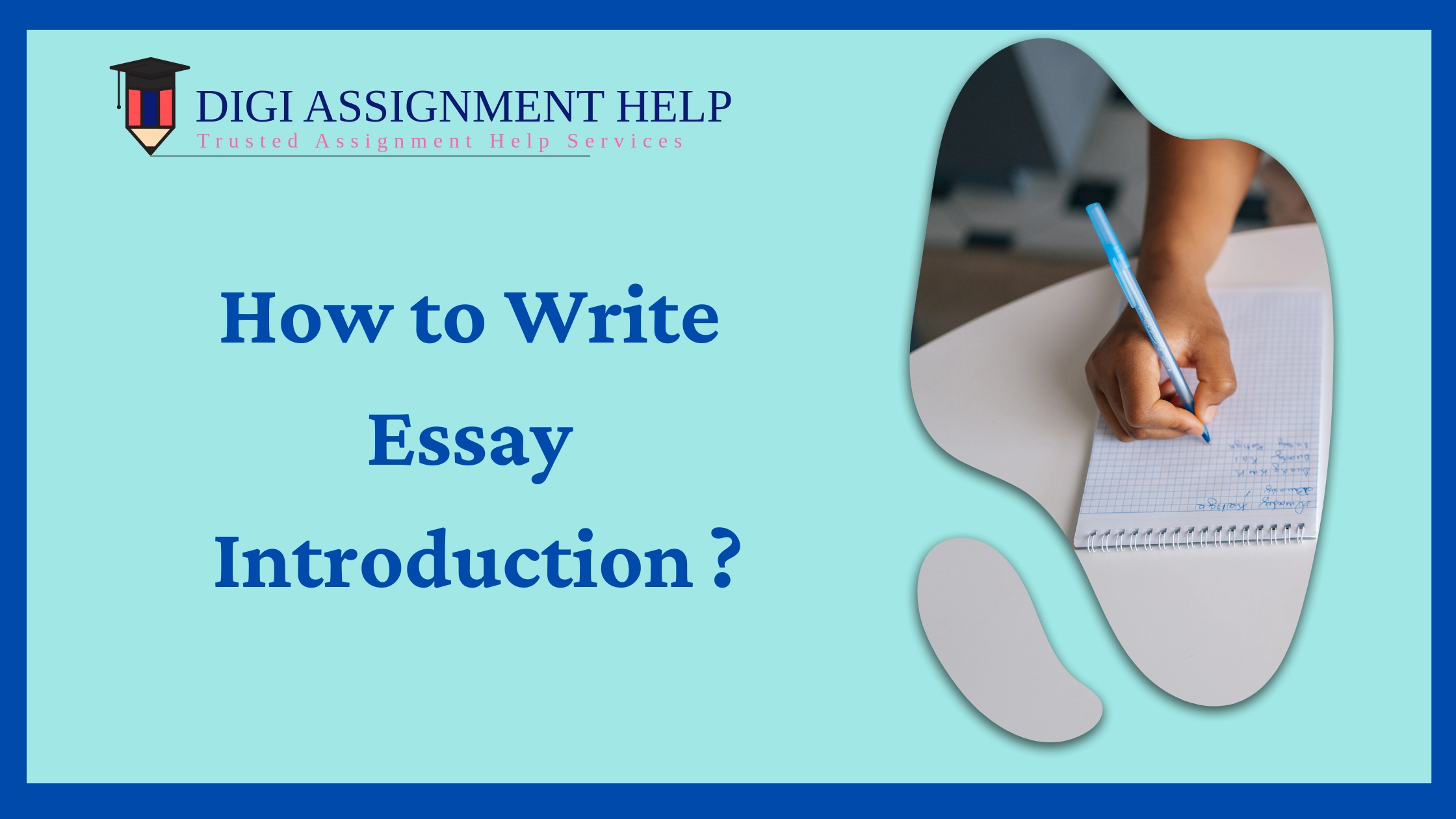How to Write Essays Introduction?
 18-Jun-2024 04:43 AM
18-Jun-2024 04:43 AM

An essay's introduction should engage the reader and provide essential background information. It introduces the topic, sets the tone and style of the essay, and piques the reader's interest right from the start.
What Is An Essay Introduction?
The first part of any piece of written composition is the introduction. It sets the stage for the work by introducing the topic and giving some history, setting, and summary of the material to come.
Being brief and to the point is essential, as is giving the reader just enough information to pique their interest without going into too much into.
How To Write An Introduction Paragraph?
Choose the level of formality and tone you want your paper to have
Lots of the time, the style is dictated by the content: Report introduction writing instructions differ from essay introduction writing instructions in English.
An autobiographical essay can use casual language, but an analytical argumentative one cannot.
Avoid using your writing style if you dislike it. If you're not good at jokes, don't. People won't mind if you write interestingly and make your views.
Write your thesis statement
You should have a firm grasp of your paper's thesis statement before you even begin to sketch up the paper's structure, specifically the research paper outline. Now is the moment to write your thesis statement, which will put your thesis into words if you haven't done so earlier.
Even though they are brief, thesis statements are often the work's most crucial passage. With a clear thesis statement, readers can understand your work.
Writing a strong thesis statement requires knowing what to leave out. A thesis statement is more of a summary than an outline. Keep your thoughts, proof, and specifics for the paper's main body.
If you're still confused, try imagining how you would teach this subject to a youngster. Your work becomes more lucid and accessible when you are compelled to utilize little words and simplify intricate concepts.
Using this method, you can also determine which details are critical right away and which can be addressed later.
Consider what background information your reader needs
Never assume anything just because you've been through it. If you're at this stage of the writing process, you've likely already done all the necessary research and are thus reasonably knowledgeable about the subject. Remember the time before you learned: So, what was it that you wished you had understood back then?
Including background information on the debate is a good idea regardless of how abstract your issue is, like an ethical debate. Just how long has this ethical discussion been going on? Was there a particular incident that set it in motion? So, the reader doesn't feel like they're missing out, details like this can assist build the scene.
Think of a good hook
The most creatively challenging aspect of writing an introduction is often coming up with a hook. Even though your work is mostly factual, the opening hook usually calls for you to make something up.
Fortunately, there are already a plethora of methods that have proven effective for beginning essays. Use a tried-and-true technique if you're not in the mood to be inventive.
Keep in mind that effective hooks evoke an emotional response, the specific response being subject- and writer-specific.
Write a rough draft of your introduction without pressure
Writing an initial draft of your introduction could make you feel nervous. Because, well, the introduction is the first thing you write when you sit down to start writing.
The greatest piece of advice is to not put undue pressure on yourself, as we discussed in our guide on producing a rough copy. That this draft is imperfect is OK; in fact, it adds to its charm.
Put your thoughts into writing so that others can understand them. You can always make changes if you feel like the words aren't quite right.
Getting your point across should be your first concern from the outset. Regardless of how it sounds, jot down your thesis statement, hook, and any background material that may be required. Later on, you'll be able to resolve the issues.
You should revise the introduction after you have written the entire paper
Before you go into rewriting the beginning, make sure you finish the first draft of the whole paper. If you make any structural modifications to your paper while writing the first draft, be sure to update the introduction to reflect those changes.
It becomes much easier to fix spelling and grammar errors and concentrate on finer points, such as word choice and sentence structure, after the initial draft.
Conclusion
The best and brightest online assignment experts are available at Digiassignmenthelp.com to provide you with first-rate homework assistance.
PhD-level assignment experts from some of the most famous schools in the world are at your service to help you create top-notch assignments. Help from actual experts across disciplines has made it easier than ever to achieve top marks.




























 +44 74 8881 8568
+44 74 8881 8568